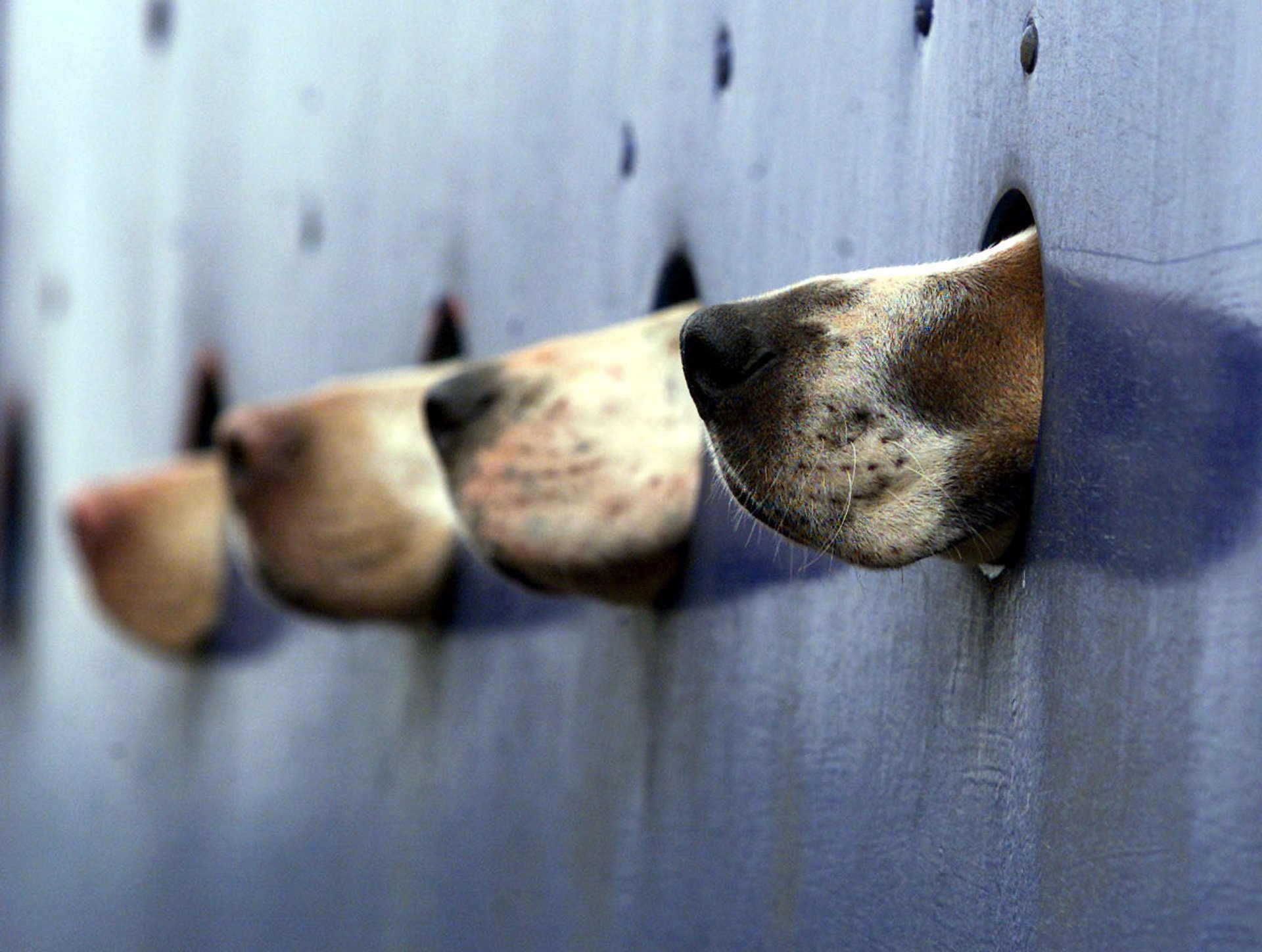A hospital in Canada is using a dog to sniff out deadly infections
What have we done to deserve dogs?


What have we done to deserve dogs?
In addition to being our best four-legged friends, dogs can be trained to do all sorts of things to help us—like sniff out danger. Dogs have much better senses of smell than we do. Although estimates vary, scientists say dogs’ noses are somewhere between 10,000 and 100,000 stronger than our own. This means they can detect a tiny whiffs of scents in diluted environments. Metaphorically, dogs could detect a teaspoon of sugar in a body of water as big as two olympic-sized swimming pools, Alexandra Horowitz writes in her book Inside a Dog. It also means they can pick out the odor of concealed bombs, drugs, smuggled foods—and, it seems, deadly infections.
Angus is a two-year-old cocker springer spaniel specially trained to sniff out the bacterium Clostridium difficile in the Vancouver General Hospital in Canada. On March 13, he was officially promoted to a worker dog after a training period of just over a year.
Teresa Zurberg, a nurse at Vancouver General, began training her dog Angus to locate C. diff in July 2016 after she recovered from a life-threatening infection. C. diff can live in our digestive tracts at low levels without hurting us. Normally, we have trillions of other bacteria living there, too, which outcompete C. diff for food and living space. Antibiotics, though, wipe out the rest of our gut flora, giving C. diff the room to flourish and cause sometimes fatal diarrhea. Patients in hospitals who are undergoing large antibiotic treatments are particularly at risk of contracting C. diff infections. And it’s exceedingly difficult to treat, because it can withstand a lot of secondary antibiotics doctors would normally use to fight infections.
Angus was trained to sniff out places C. diff may linger—like jeans of patients who are carriers of the bacteria. Since he started training at Vancouver General, he’s found the bacterium lurking in over 100 different locations. “This doesn’t mean the hospital isn’t being cleaned properly,” Elizabeth Bryce, a physician and director of infection control at Vancouver Coastal Health, told the Vancouver Sun. “[Angus is] showing us there are new areas that need more [sanitation] attention.” After Angus finds these spots, the bacteria are easy to kill with ultraviolet light, potentially saving hospital patients’ lives.
Above, the good gut bacteria-sniffing doggo poses with a plush C. diff toy. Now that he’s officially a working dog, Vancouver General would 10/10 would hire again: the hospital is currently training a second spaniel named Dodger—also owned by Zurberg—to sniff out C. diff.